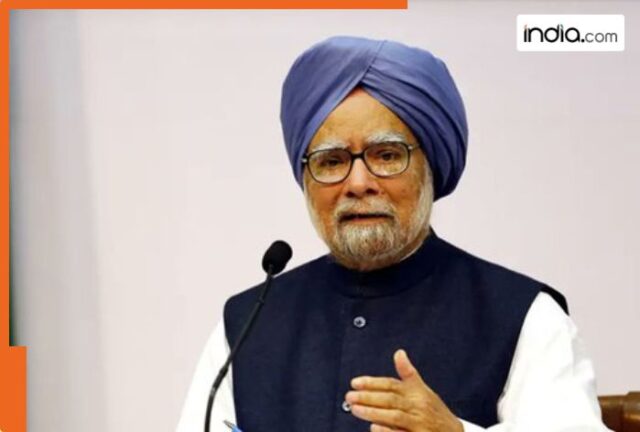New Delhi: Former Prime Minister Manmohan Singh passed away on Thursday night at the age of 92 due to age-related medical conditions. Following his passing, condolences have poured in from around the
New Delhi: Former Prime Minister Manmohan Singh passed away on Thursday night at the age of 92 due to age-related medical conditions. Following his passing, condolences have poured in from around the world for former Prime Minister Dr. Manmohan Singh. Leaders from neighboring countries, including the Maldives and Afghanistan, expressed deep grief, highlighting his significant contributions and the strong relations he built with their nations.
The body of former Prime Minister Manmohan Singh reached his residence late Thursday night from AIIMS and would be placed for the public to pay their last respects.
Singh, a renowned economist who was the finance minister under the then prime minister P V Narasimha Rao, was the architect and the brainchild of economic reforms in 1991 that pulled India from the brink of bankruptcy and ushered in an era of economic liberalisation that is widely believed to have changed the course of India’s economic trajectory.
Manmohan Singh, renowned for his calm demeanor and intellectual prowess, was a skilled consensus builder who earned respect across political divides. During his tenure as Prime Minister, he spearheaded significant initiatives like the Mahatma Gandhi National Rural Employment Guarantee Act (MGNREGA) and the India-US Civil Nuclear Agreement, among many others.
A soft spoken leader, a gentleman politician and a man of few words, Singh battled allegations of corruption against his government including the coal scam and the 2G telecom scam which eroded the UPA government’s hold over power and gave an opportunity for the BJP’s rise and march to victory in the 2014 Lok Sabha elections.
Manmohan Singh, born in Punjab in 1932, served two terms as Prime Minister of India from 2004 to 2014. He first took office in 2004 after Congress’ victory in the 2004 Lok Sabha election against the Atal Bihari Vajpayee-led NDA. He served his second term from 2009 to 2014 and was succeeded by Prime Minister Narendra Modi in 2014.
Although critics often referred to him as a “silent PM,” Manmohan Singh defended his approach to leadership. Speaking at the launch of his book Changing India in December 2018, he said,”People say I was a silent Prime Minister. I think these volumes speak for themselves. I would certainly like to say that I was not the prime minister who was afraid of talking to the press – I met the press regularly, and on every foreign trip I undertook, I had a press conference in the plane, or immediately after landing. So there are a large number of those press conferences whose results are also described (in the book).”
Topics
















































